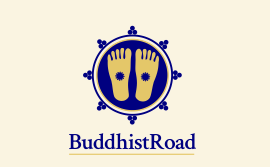
Online Workshop on "Contemplation and Non-Doing"
The Dzogchen project, based at CERES and sponsored by the Federal Ministry of Education and Research, is organizing an online workshop on "Contemplation and Non-Doing", from 22 to 24 September 2021. Effortlessness is a central theme in the Tibetan Dzogchen tradition. The workshop will provide the occasion to examine this theme comparatively in the context of a number of traditions of contemplative practice.
Dzogchen is a Tibetan Buddhist contemplative tradition that emphasizes effortlessness as a key fea-ture of its doctrinal architecture and meditative programme. Non-striving thus represents one of the central research questions examined in the “Dzogchen” project, which is sponsored by the German Federal Ministry of Education and Research and is based at the Center for Religious Studies (CERES) of the Ruhr-Universität Bochum. The present workshop seeks to explore this theme in a broader framework, by looking at it comparatively from the viewpoints of a number of religious traditions.
Many traditions of contemplative practice, whether they be Buddhist or of other religious origin, emphasize the need to purify the tendencies towards outer and inner forms of distraction. This leads to a state of (outward) solitude, which can (but need not necessarily) be temporarily and spatially delimited. Solitude thus provides a framework for actual contemplation or absorption, the central task of the contemplative life (= inner solitude). Although contemplation is usually presented as the result of a strenuous process of gradual renunciation and effort, the higher stages of contemplative practice often underscore the fact that wilful striving can be an obstacle to true contemplation. In such an optic, wilful striving eventually gives way to a suspension of effort and opens up to a state of inner letting-be.
The meaning (and the precise order) of this threefold structure (solitude – contemplation – letting-be) is presented differently according to various contemplative traditions. It provides a fruitful field for a comparative religious enquiry, one in which both the commonalities and differences between traditions of mystical praxis can be explored. This workshop will provide a forum for experts to discuss this theme from the perspectives of the following traditions of mystical praxis: Dzogchen, Tantra, Mahāmudrā, Chan/Zen, Pure Land Bud-dhism, Daoism, Kashmiri Shaivism, Judaism, Christianity, and Sufism.


